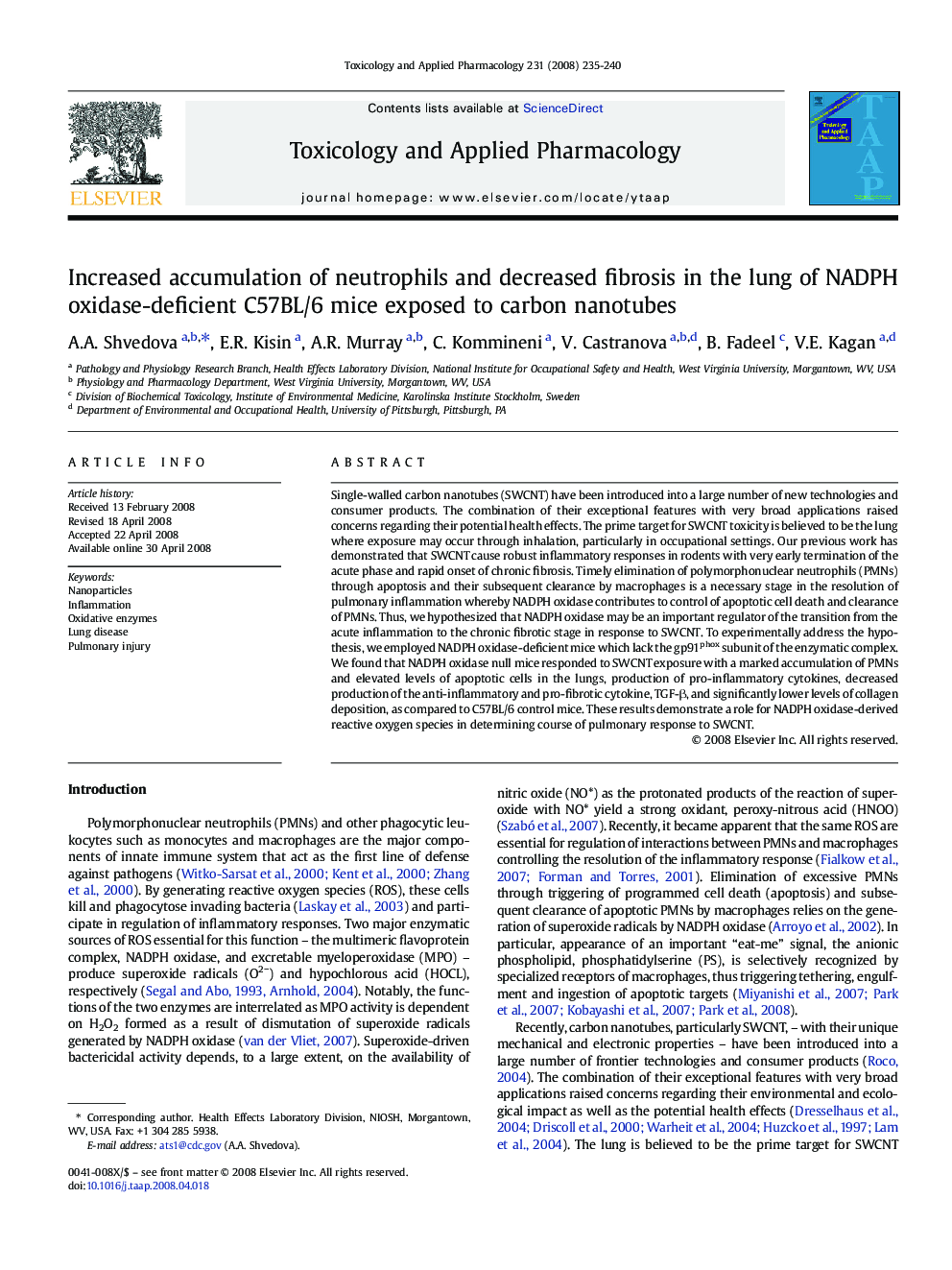| Article ID | Journal | Published Year | Pages | File Type |
|---|---|---|---|---|
| 2570251 | Toxicology and Applied Pharmacology | 2008 | 6 Pages |
Single-walled carbon nanotubes (SWCNT) have been introduced into a large number of new technologies and consumer products. The combination of their exceptional features with very broad applications raised concerns regarding their potential health effects. The prime target for SWCNT toxicity is believed to be the lung where exposure may occur through inhalation, particularly in occupational settings. Our previous work has demonstrated that SWCNT cause robust inflammatory responses in rodents with very early termination of the acute phase and rapid onset of chronic fibrosis. Timely elimination of polymorphonuclear neutrophils (PMNs) through apoptosis and their subsequent clearance by macrophages is a necessary stage in the resolution of pulmonary inflammation whereby NADPH oxidase contributes to control of apoptotic cell death and clearance of PMNs. Thus, we hypothesized that NADPH oxidase may be an important regulator of the transition from the acute inflammation to the chronic fibrotic stage in response to SWCNT. To experimentally address the hypothesis, we employed NADPH oxidase-deficient mice which lack the gp91phox subunit of the enzymatic complex. We found that NADPH oxidase null mice responded to SWCNT exposure with a marked accumulation of PMNs and elevated levels of apoptotic cells in the lungs, production of pro-inflammatory cytokines, decreased production of the anti-inflammatory and pro-fibrotic cytokine, TGF-β, and significantly lower levels of collagen deposition, as compared to C57BL/6 control mice. These results demonstrate a role for NADPH oxidase-derived reactive oxygen species in determining course of pulmonary response to SWCNT.
